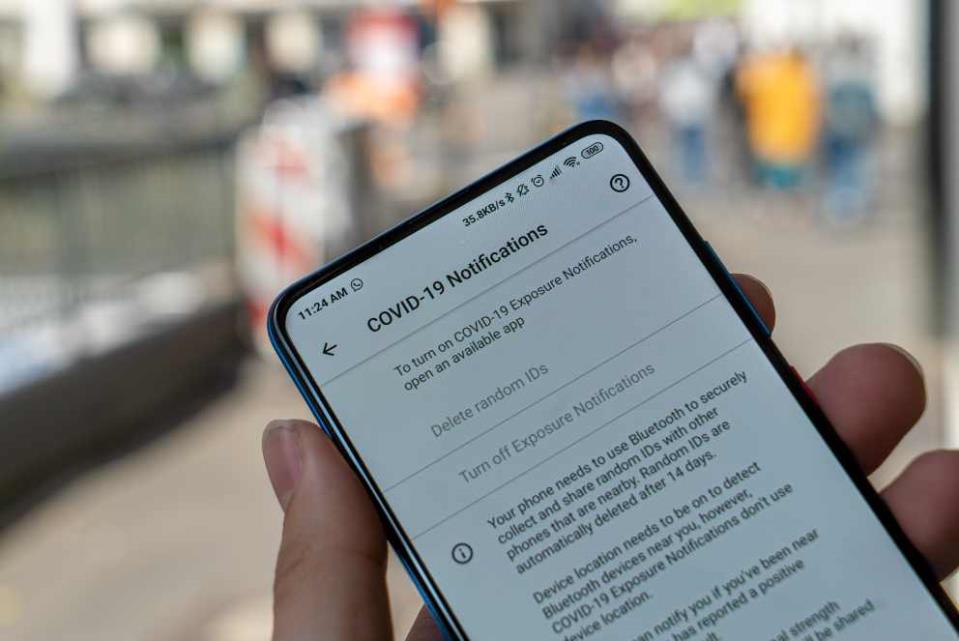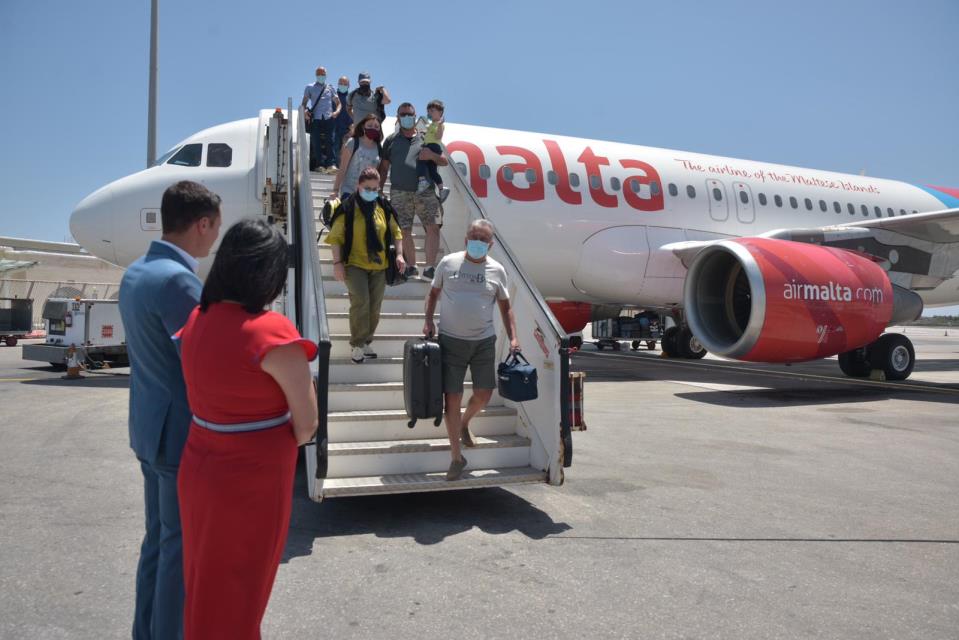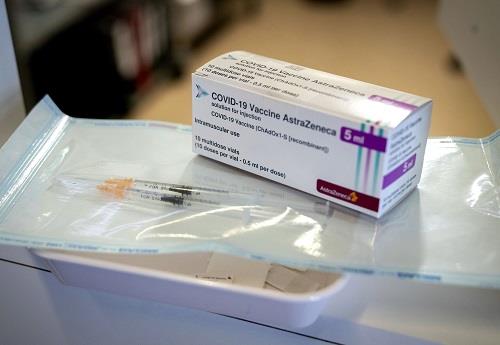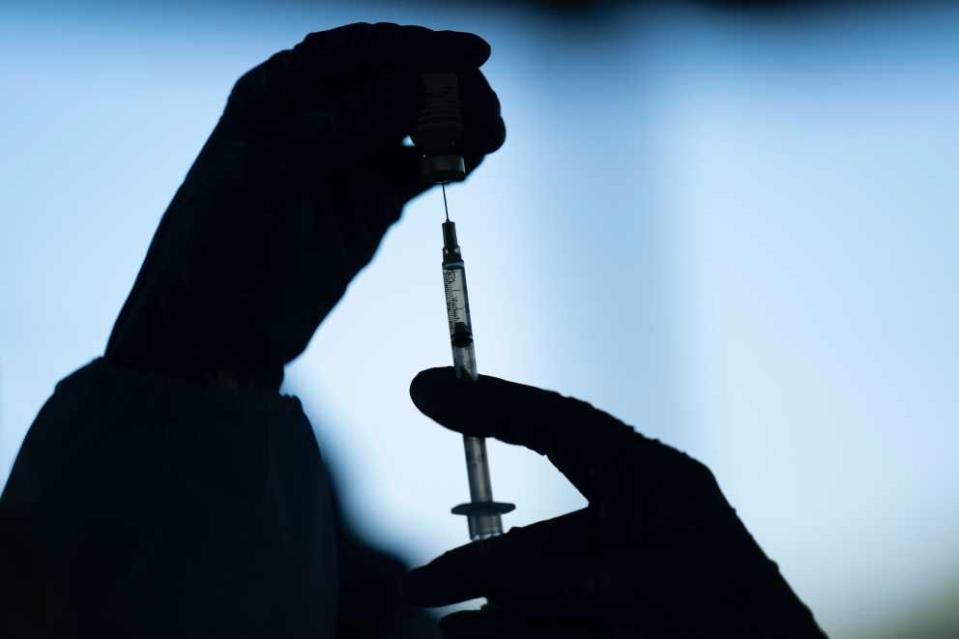Do you think the measures in place are enough to curb the spread?
The current measures are important in the current situation we find ourselves in. But, I have to say that these are measures which came in place too late and when the number of active cases is exaggerated. So, I think that today's measures which are in place to mitigate the spread of the virus are adequate, but late.

You recently said that Government lied when it said that contact tracing is working. What do you think went wrong and how should it be fixed?
Contact tracing has been moving backwards for quite a few months. It is going backwards because the transmission of the virus is continuing to increase, and as you know, contact tracing is made up of human resources. These workers contact whoever is infected, and whoever had contact with infected persons.
When you have human resources that were barely managing when we had the average of 80 cases a day, it can't be expected to be able to catch up with an average of 250 cases a day with the same amount of human resources. In fact, we are seeing how contact tracing has collapsed.
It is important to note that contact tracing is as important as the vaccination program, because with contact tracing you mitigate the spread and that way you can avoid the effects on mortality - because we have to mention the people that are succumbing to the virus, which is close to 400 now. We have to have sympathy towards these persons and their family. But then there is also the biggest effect: the effect on the healthcare system.
Contact tracing needs to be fixed in a simple way: increase human resources, encourage contact tracing to be more efficient by increasing workers, being on time when contacting people and also by educating the country what contact tracing is, so that if someone might have possibly been in contact with another person who is infected, it comes from his/her own initiative to call the available numbers so that s/he informs them.

The PN proposed that airports and ports get better screening. How is this to be done since it also requires a lot of resources and also human resources?
We have the advantage that we are an island, so the borders can be controlled much more than in other countries. Here, the government thought about this too late as well. In fact, if one looks in retrospect, the success we had during the first wave was due to the closure of the airport as we avoided the importation of the virus. Now, not only did we not avoid the importation of the virus - apart from the virus that spread amongst the community at large - but we also let the variant come in.
There is a big threat of other variants of Covid-19 that can affect us badly both in the way in which they are transmissible as well as how much they are virulent and dangerous. We have a chance to learn from other countries, as we lag behind, so we can look at what happens.
For example, when the variant cropped up, we saw other countries closing borders, they scrutinised the airports in a way that they almost wouldn't let the situation pass them by in terms of the virus. In the airports and ports, we don't wait for people only to take the test, but we have to go there ourselves as a country. We have to chase the virus, not let the virus chase us.
So that is why it is important to have adequate screening, good scrutinization, especially in airports and ports. Let's not forget that we have a catamaran that comes and goes regularly with transportation from Sicily, and we know that from there a lot of people come who travel from diverse places to arrive here. So that is why we need to be vigilant, since if we are not going to control it, the spread will be much more difficult to curb, and we need to avoid the negative effects on the healthcare system.

As you know, AstraZeneca was temporarily suspended for use in a number of European countries until the European Medicines Agency (EMA) gave it the all-clear. In health-terms, do you think the vaccine is worrying?
I followed this issue quite well as first it interests me as a doctor as well as a politician who needs to follow the health system. From my part, I stood by the scientific claims that the EU regulators gave us.
As we know, the vaccines that were released for use in the EU, even though across the world as well, had gone through a rigorous process so as to establish what we call their 'safety profile', to be certain that they don't have particular side effects that can cause more damage.
From my perspective, the regulator which licensed the use of these vaccines is a very serious one and so I stand by their views. I understand that if there is going to be a removing of a medicine - like we sometimes did have in the past - or of a vaccine, it will be the same regulator that would point this out. On the contrary, a statement was released by themselves to clarify that the AstraZeneca vaccine is safe to continue being used.
We have to understand as well that even if you see the numbers, over 20 million doses were given and the cases of possible serious side-effects reported were only a few, and there is doubt whether they are directly related to this vaccine. Nevertheless, one has to remain cautious, as we want to aid people when we give out medicines.

Will we need a booster dose?
The issue of a booster is currently being discussed by many pharmaceutical companies, including Pfizer recently, which said that the world might need a booster against this virus.
The booster would be directly related to the issue of variants as it can be the case that you would have variants that would partially resist the immunity that the vaccine would give you. That is why we might need boosters, like we do every year when the seasonal flu comes around, to boost our immune system again.
I encourage the roll-out of the vaccine to be as fast as it can, and that is why as an Opposition we suggested the use of family doctors, pharmacies and so forth, especially when it comes to mass vaccination so that you can reach heard immunity faster. The faster you reach herd immunity, the more you can control the spread of the virus and also the variants. If you don't allow the virus to spread, then this wouldn't have a chance to multiply and to change. So there is a very valid point regarding the vaccination roll-out to be faster, even though it doesn't necessarily depend on our country since we depend on companies abroad which are supplying the vaccines.
But as we know now, the Johnson & Johnson vaccine has been approved by the EMA, which is very friendly as it is a one-shot vaccine and refrigerator-stored, so it would be ideal to be used by family doctors and pharmacies so that we would reach, in logistical terms and more effective ways, the Maltese and Gozitan population.
When do you think we will recover from Covid-19, or at least, reach a certain sense of normality? What factors can lead to a delay in this?
The road to normality needs to be the goal for all of us; the Government, Opposition - as we both need to pull one rope in this situation - and for all citizens and residents as in a responsible manner, we all have to do our part. We need to get rid of the virus as fast as possible. I also want to mention the front-liners that work extremely hard to save the lives of these patients with great sacrifices, sometimes far away from their families. So that is why I put the responsibility on all of our shoulders and encourage everyone to play his/her part.
But yes, there are a number of variables that can hinder us from reaching normality as soon as possible. One of them is if we don't control the spread. This could be due to a lack of enforcement, if we are lax and if the contact tracing is collapsing, where there would be a delay of 5 days or more. These are the most infective days for a person who has the virus - between day 4 and day 8. So imagine if this person met with someone who is infected and you didn't inform him/her within the first two days - when s/he wouldn't have yet accumulated that viral load to infect others. You would have lost control over the situation.
We have to remember that to win this pandemic and to reach a certain sense of normality, we have the important factor of vaccination, but in this situation, the vaccination program alone cannot work; we need measures. We have a lot of variables and if one of them fails it can be a hurdle for us in our road to reach normality.
Also, there are not enough resources in ITU, there is not the 1-to-1 patient to nurse ratio, so the quality of healthcare is decreasing. So there are so many things that tick the boxes to going into a National Health Emergency, and we believe it should be done as the pandemic should be led by the office of the Superintendent of Public Health because we trust them, as they can see what is best without any partisan or political issues circling.
The Opposition also suggested the introduction of a scientific advisory board, which would be made up of non-partisan and non-political experts, so these would suggest scientific measures. We can't get used to these high numbers, where at one point we were worried about the r-factor and now it seems as if we are not. We can't be worried at one point about the beds in ITU yet at this point, they are now almost fully loaded, and trained specialists are limited. The hospital is at full capacity, we can't forget that there are non-Covid patients. However, I want to be optimistic - if everyone gives his/her contribution, we will reach normality in due time.